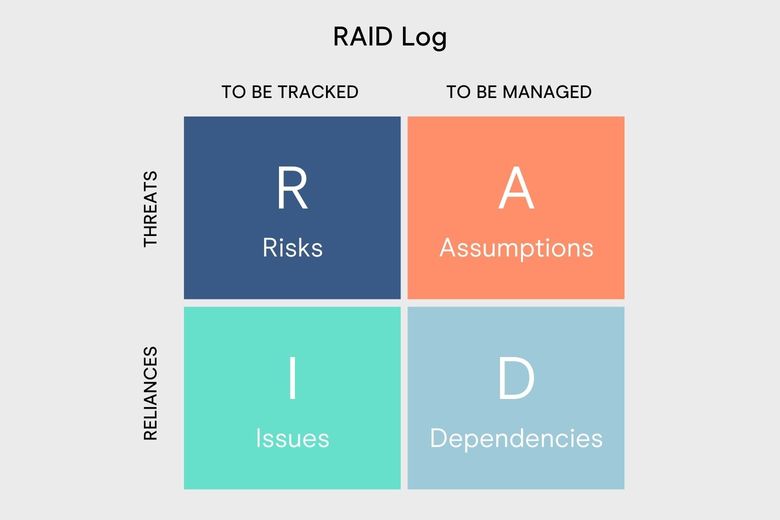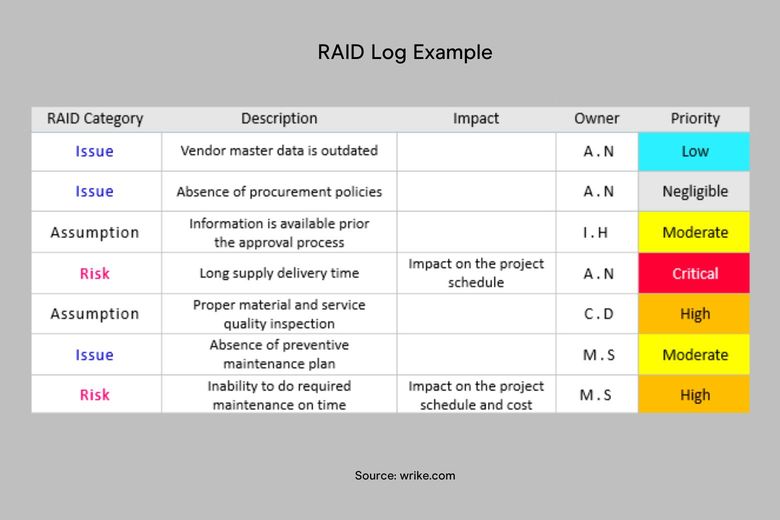
Lalita D'Cruze27/01/23
4 min read

This article is the second in a three-part series that looks at key project planning tools and how they can help you best manage your charity website development. In our first article we looked at how the RACI Charting and Analysis tool can help clarify project responsibilities for each deliverable or milestone, and ensure effective decision-making throughout. The second model we will be focusing on is the RAID log - a key part of risk reduction in project management.
RAID stands for Risks, Assumptions, Issues, and Dependencies. You should use a RAID log to monitor and keep an audit trail of key events, decisions and influences on your charity website design project. This will help you as a project manager to develop a strategy to identify and prevent risks and issues that may causes delays or harm to your project.

Risks: Potential circumstances or events that may occur during your project. There are two types of risk associated with most projects; ‘threats’ that could have a detrimental impact on your project as well as positive or ‘opportunity’ risks, which could potentially bring a positive impact to the project or your charity. You’ll need to identify and assess each risk, detail it and develop a plan for how to handle the risk if it does occur. Some of the more common risks you might want to consider are:
Assumptions: An assumption is anything that you anticipate will happen in order for your project to proceed as planned.
Issues: In terms of a charity website design project, your issues will be challenges you foresee that have to be dealt with effectively for the project to reach completion. During your project, you may find that a risk becomes an issue when an event you identified as being a possibility becomes a reality.
Dependencies: A dependency is a task that has to be completed before another can begin. You may have multiple dependencies to tick off before one of your actions can begin. Identifying them in advance can help your team prioritise their tasks more efficiently so you don’t risk missing any deadlines. It is essential you identify your critical path and dependencies early; this allows you to spot risks before they become issues.

Once you have carried out your RAID analysis, the information can be compiled and stored using a RAID log. This document will organise the identified risks, assumptions, issues, and dependencies for your wider project team to reference and understand the project’s limitations and potential issues from the off. Ultimately, your RAID log will help colleagues and other stakeholders to move quickly if your identified ‘potential risks’ come to fruition.
Nothing beats having a team of professionals on your side to see your project through to a successful completion. Our project team are PRINCE2 Agile qualified, and we work to the highest standards in project management. Speak to us today to find out how we ensure our charity website development projects are delivered on time and to budget.